Deliverable: Learning pathway
What happens when the standard product launch training playbook no longer works?
An up-and-coming life science company was preparing to launch a new oncology product into a competitive market. As with all launches, their goal was to get their product into the hands of the patients who need it the most as quickly as possible. This could only happen if their sales team had the ability to lead effective conversations with healthcare providers.
The old approach was not going to work
In the typical pharmaceutical product launch, there’s a standard, almost templatized way to train the sale team that centers on disease, medical, and product knowledge. But after consulting with client stakeholders, it was clear a brand new approach would need to be imagined. It turned out that the product in question was a generic biosimilar that was not clinically differentiated from its competitors. The only advantage the product had was its reimbursement profile and this advantage only existed for certain types of hospitals. This meant the L&D team had to throw out the standard playbook. But building a learning plan from scratch had the potential to overwhelm them.
Early on, BCL worked with the company to clarify its business goals and identify the major performance areas that would most affect business results. Upon digging deeper into the business problem, it became clear that market success would require reps to have at least two unique skill sets: the ability to pre-qualify hospitals in their territories so that they can focus their efforts and the ability to make a sophisticated economic pitch in a complicated healthcare market. These are not your typical sales rep skills or ways of operating.
A 13-month learning journey
After the business goals and key performance areas were clarified, BCL helped to identify the main learning gaps. These gaps were then used to build learning pathways for each of the company’s field teams. The learning pathways expressed the developmental stages field team members progress through over a 13-month period as they go from novice to master. The journey begins with a one-month initial training period followed by a 12-month field development period.
From a topical standpoint, the program emphasizes the economics of the market – product distribution, hospital dollar flow, reimbursement, competitor economic profiles, etc. The goal for the learning experience is to give the sales team as much practice as possible leading realistic reimbursement conversations (both mental reps and practice reps). For example, the learning pathway includes war game simulations where a sales rep will bring details of their actual accounts and the team will plan and brainstorm how to approach them. The pathway includes many workshops with scenario-based activities and simulations as well.
A new model for product launches
As soon as they pathways were completed, the two-person L&D team had a clear plan they could follow as they pulled together the resources to bring the program to life. They have since implemented the learning program and it is currently being used to guide new sales reps through their journey to master product salespeople. The pathways are also serving as a new template for product launches where economic differentiators are the main drivers of business.





